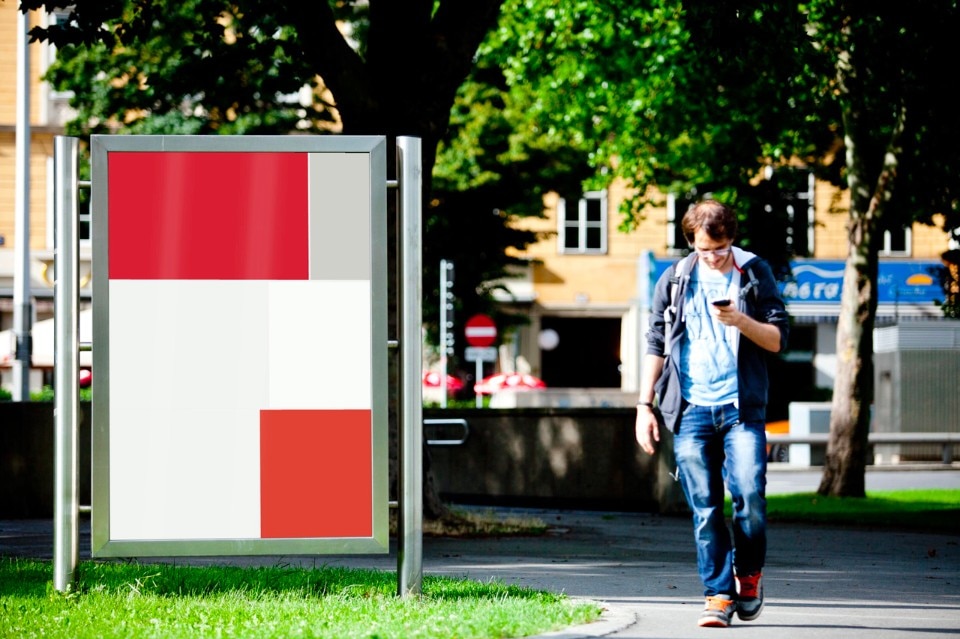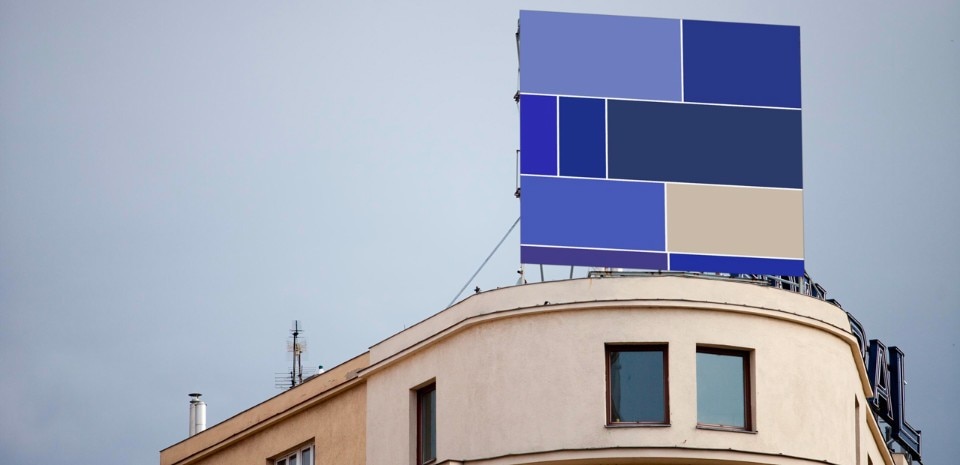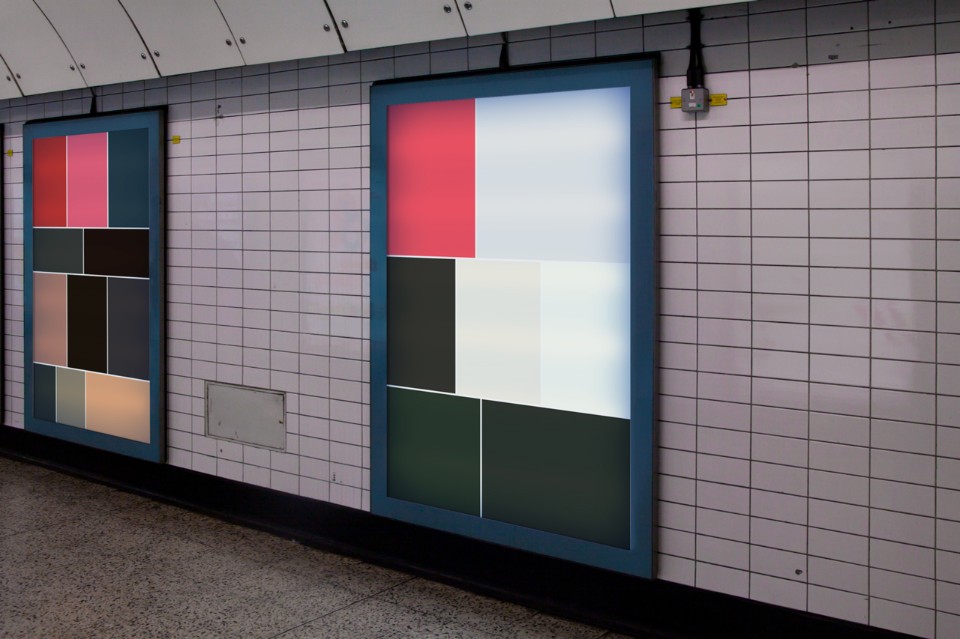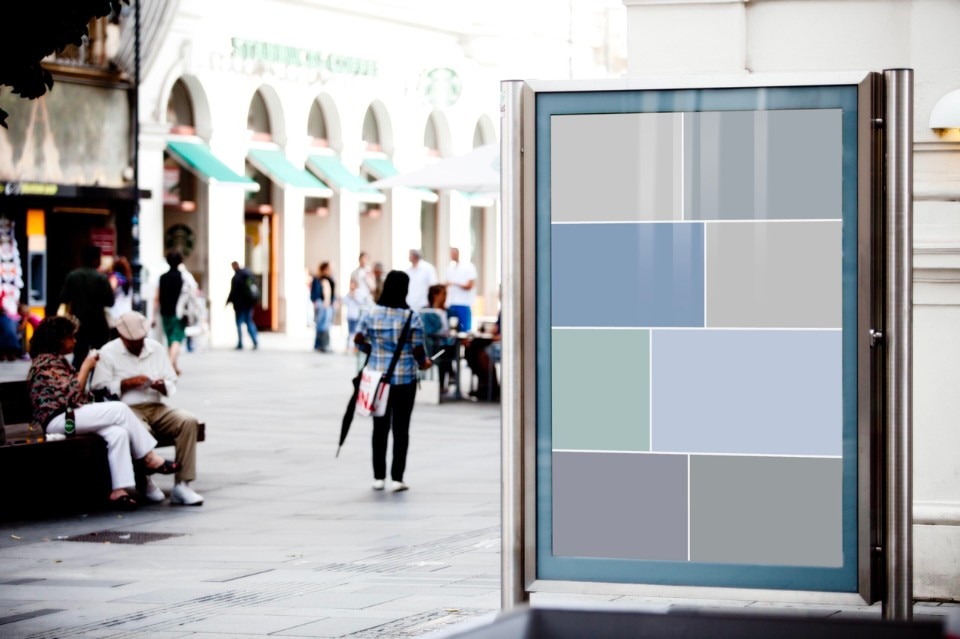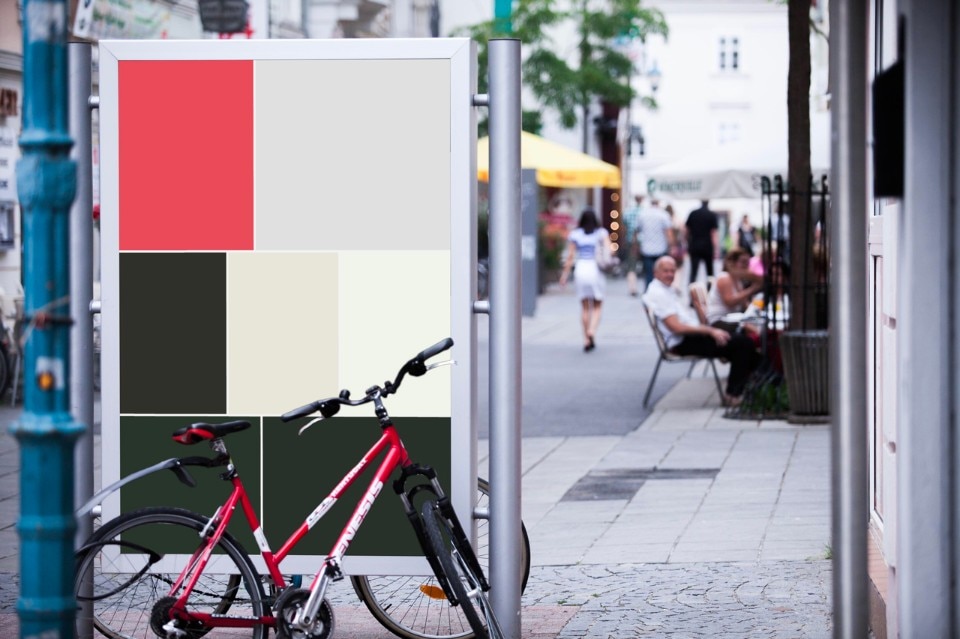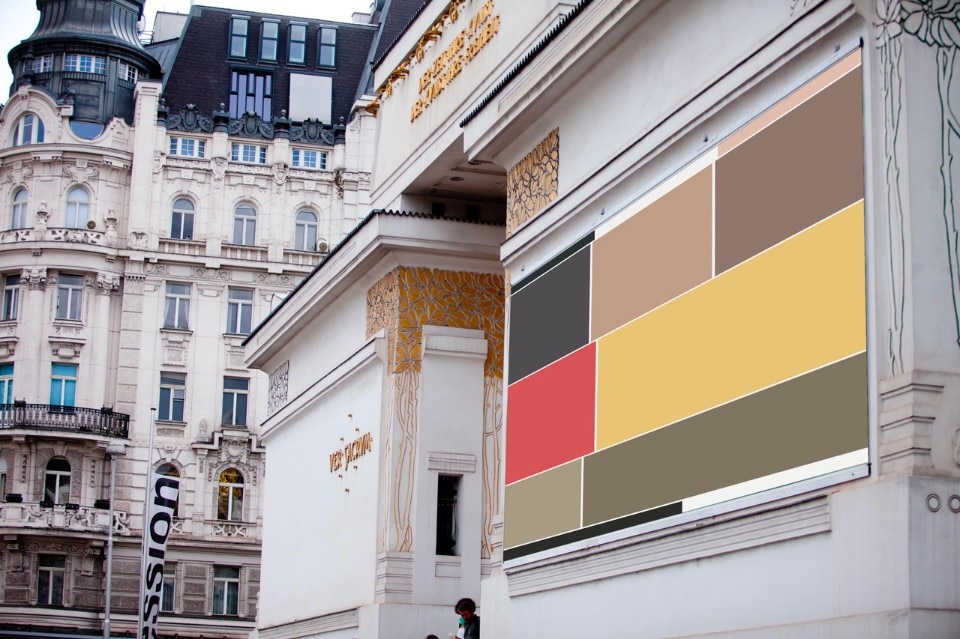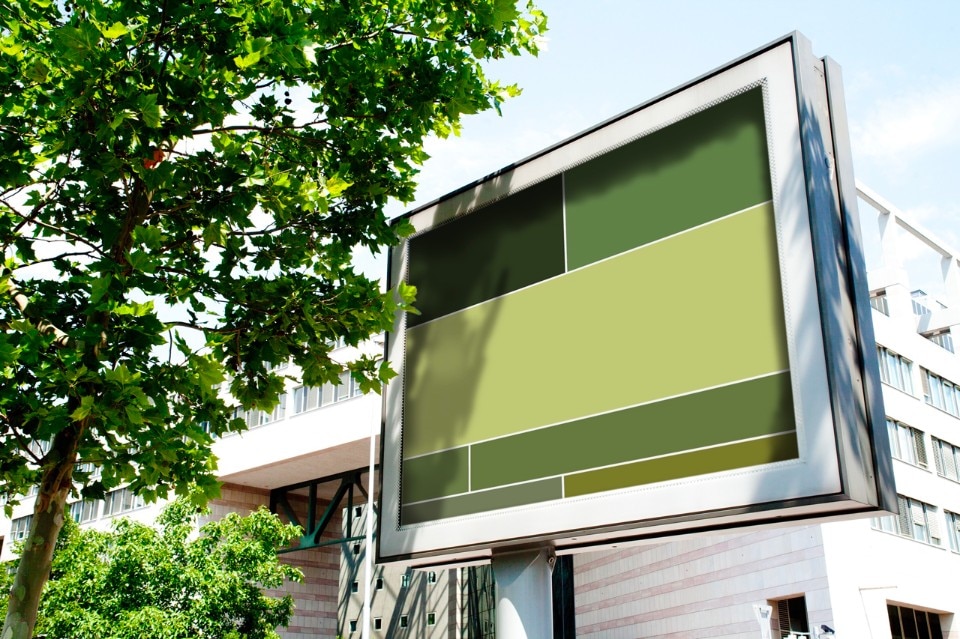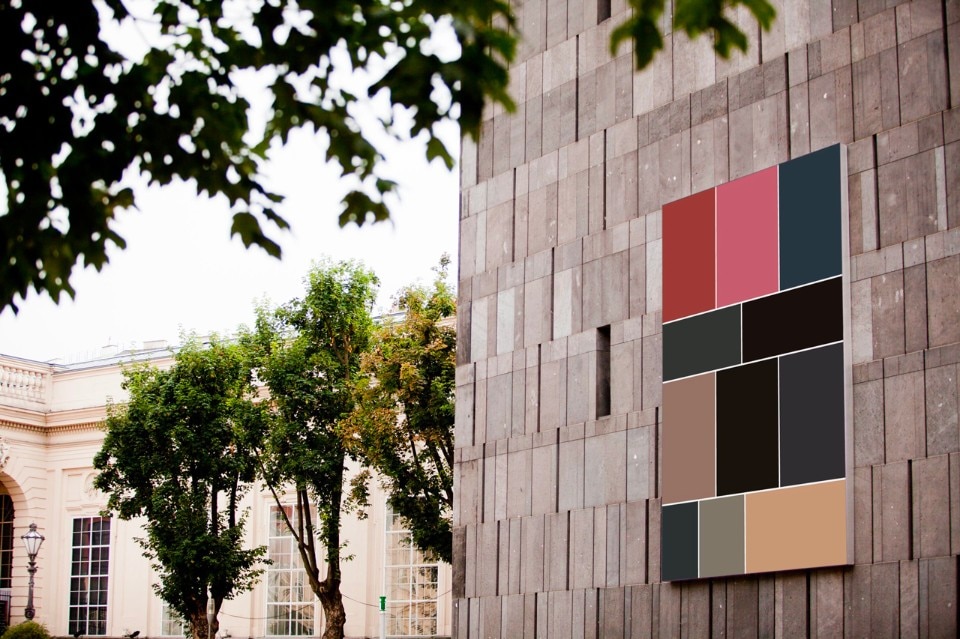
 View gallery
View gallery
This process of loading images that create random graphics makes Google searches a fun improvisation game in the art of painting digitally. The project is influenced by the work of some master like Rothko and Mondrian, but in reality these “paintings” are created with a simple “print screen” in the precise moment when Barato feel the perfect composition and color balance. After going through digital platforms and social networks, Barato decided to turn these works into “street art” by showing the compositions as posters and billboards, transforming the usual advertising platforms in minimal art displays, and streets in art galleries. For this it had the support of some municipalities and agencies, occupying publicity supports that were not being used.
